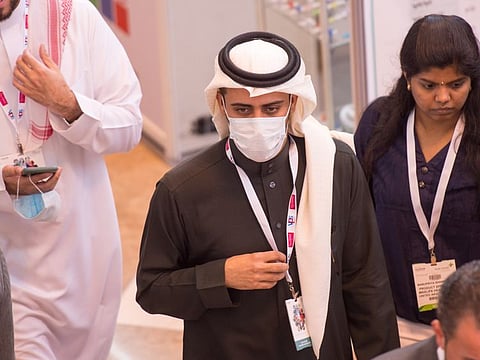UAE health care providers asked to be vigilant
Authorities sent advisory well before first confirmed case, say sources

DUBAI: Health care providers in the UAE have been directed to be vigilant in handling cases with respiratory symptoms and send any samples of suspected cases of Novel Coronavirus (2019-nCoV) to the health authorities so they can be tested and contacts duly screened, sources in the health sector told Gulf News on Wednesday.
The sources were citing a circular sent by the authorities on January 23, a week before the first case of 2019-nCoV virus was confirmed by the Ministry of Health and Prevention on Wednesday.
FIRST CASE IN UAE
On Wednesday morning, the Ministry of Health and Prevention confirmed that the first case of Coronavirus in the UAE was detected in a family travelling from Wuhan, the Chinese city where the virus was first reported. The ministry added that the health of those infected is stable and under medical observation. Sources told Gulf News that the family comprised four members and they had flown into the UAE.
In a statement issued in the morning, the ministry confirmed that the first case of Coronavirus in the UAE was detected in a family travelling from Wuhan, the Chinese city where the virus was first reported. The ministry added that the health of those infected is stable and under medical observation. Sources told Gulf News the family comprised four members and they had flown down to the UAE.
The ministry said epidemiological investigation centres in the country are working round the clock to report any cases of the virus early on. It added that it is closely following the situation in a way that guarantees the health and safety of everyone.
Travel history
Sources said the authorities have asked health care providers to be more vigilant about managing cases with acute respiratory symptoms, especially in cases where the patient has a travel history to China during the last 14 days prior to the onset of symptoms or has had a close physical contact with a confirmed case in the past 14 days.
Most of the cases have had exposure to a large seafood and animal market, suggesting a possible zoonotic origin to the outbreak, and with proved human-to-human transmission.Circular
They said the circular said, “Recent reports from World Health Organisation confirmed that Novel Coronavirus (2019-nCoV) is a new strain that was first identified in a cluster of pneumonia cases in Wuhan City, Hubei Province of China.” Ever since, cases have been reported from other parts of China and several countries outside, including Thailand, South Korea, Japan and the United States. So far, 132 people have died and over 6,000 people affected by the virus.
They quoted the circular as saying, “Most of the cases have had exposure to a large seafood and animal market, suggesting a possible zoonotic origin to the outbreak, and with proved human-to-human transmission.”
Main symptoms
Most of the cases showed respiratory symptoms, fever, shortness of breath and pneumonia, they added.
They said according to the communication, there is no known treatment or vaccine available for either people or animals and that the cases are being managed with intensive supportive care and treatment of symptoms.
The sources said as things stand now, the circular said laboratory testing for 2019-nCoV is being done “only at the national public health laboratory” and any sample from suspected cases has to be sent to the authorities to confirm a clinically suspected case and screen contacts.
They said the mode of transmission of 2019-nCoV remains unknown, according to the circular, but that they had been asked to ensure that the
infection control team or the representative in every health care facility follows contact and droplet precautions, and raises necessary awareness about the virus.



